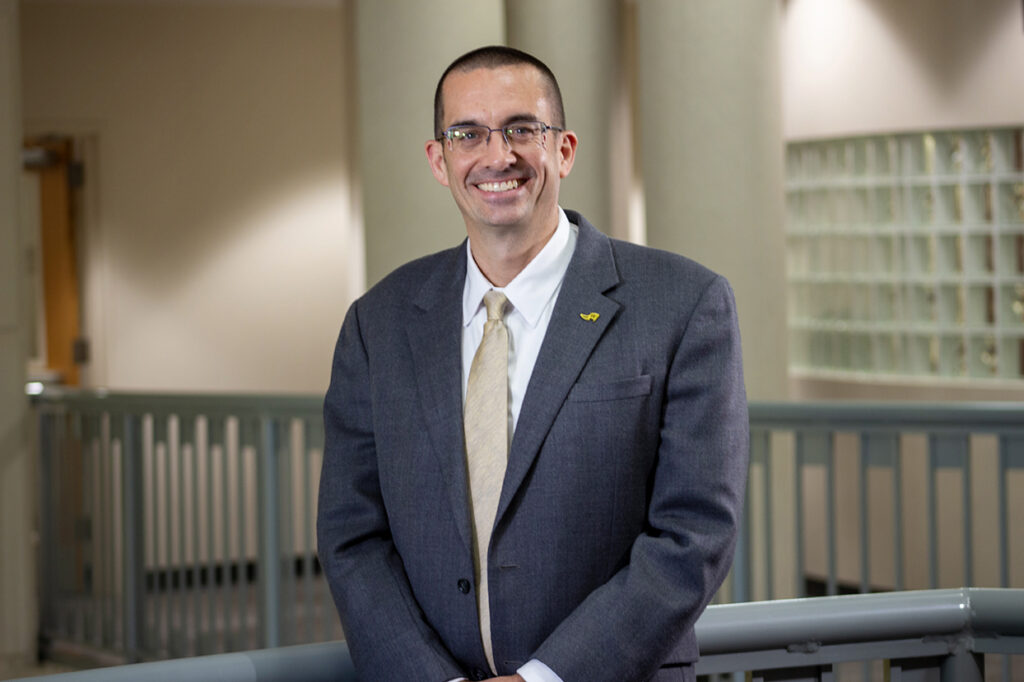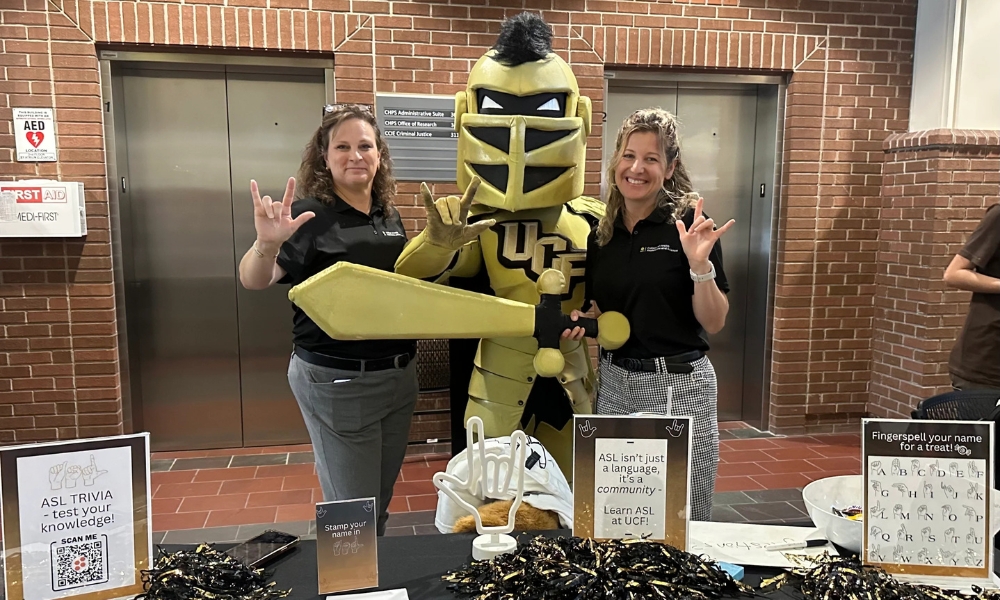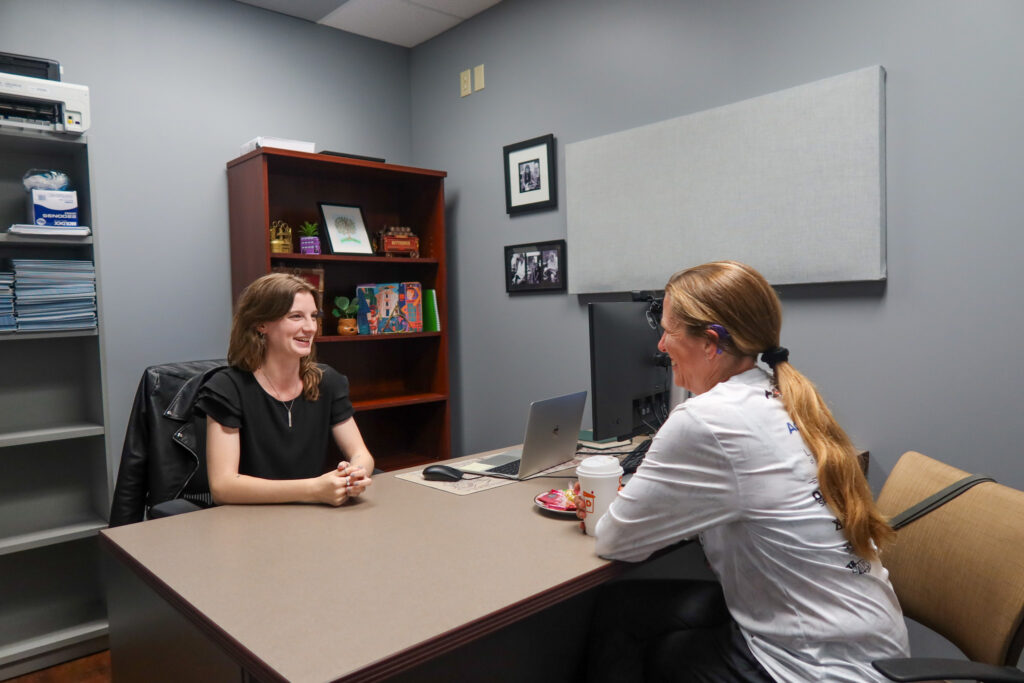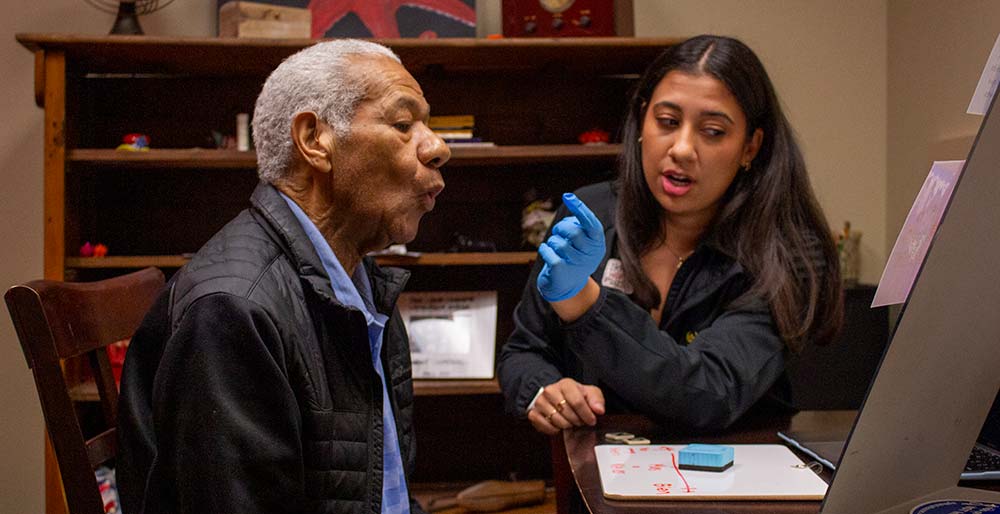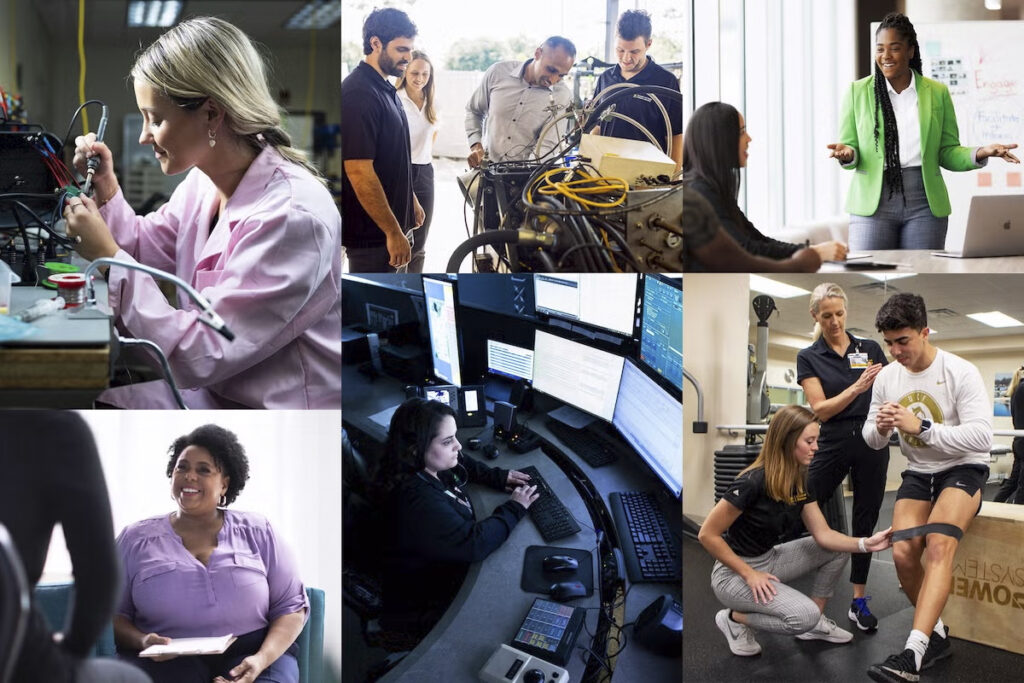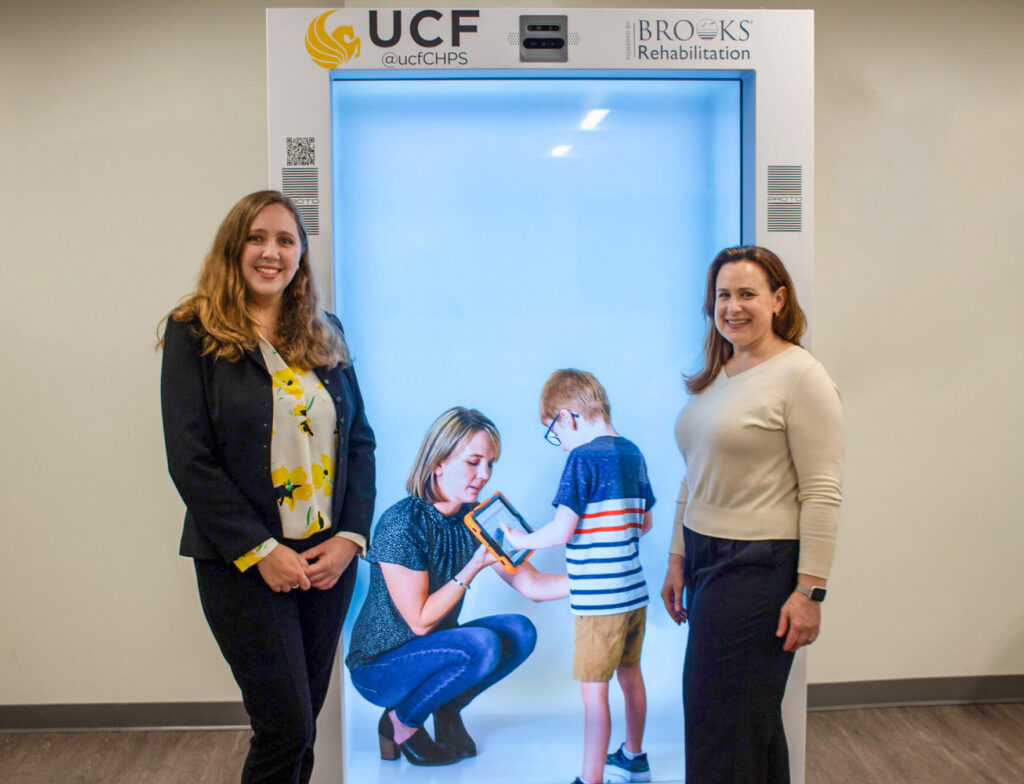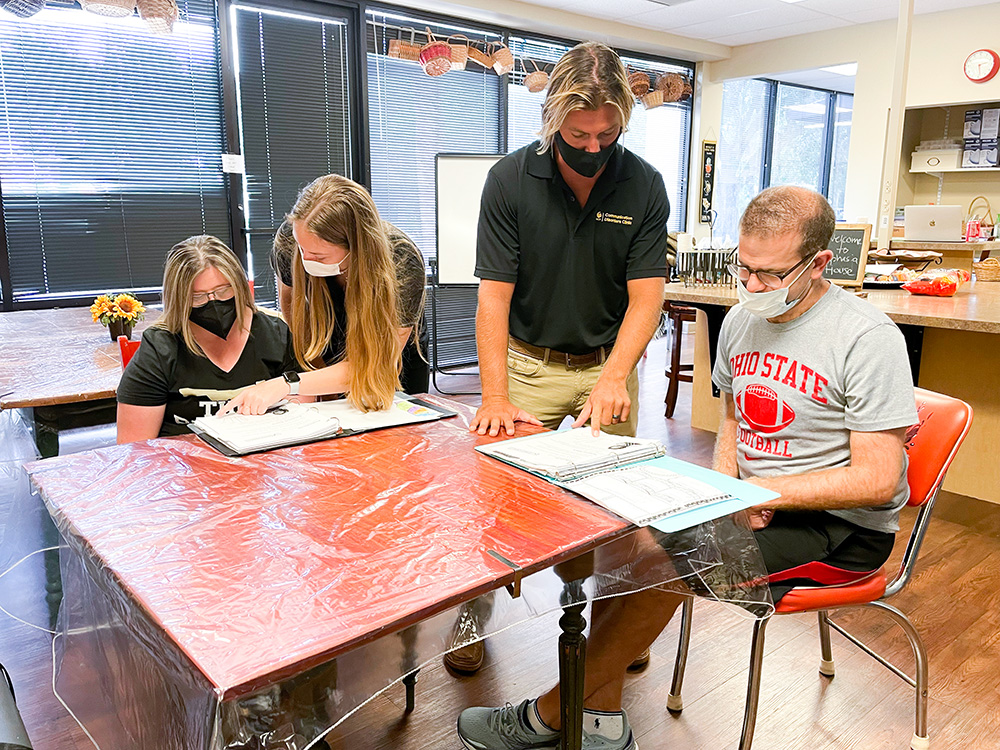
The hands-on education that School of Communication Sciences and Disorders (CSD) Clinical Instructor Kelly David ‘08 ‘13MA provides graduate students not only comes from her qualifications as a speech-language pathologist (SLP), but also from her lived experiences as a mother whose son has a rare neurogenic disorder called Angelman syndrome. Combining her experiences, David presents students with a unique hands-on approach to client-centered care.
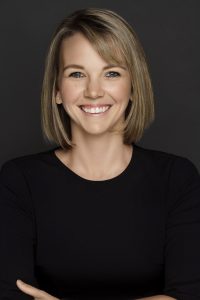
SLPs are key in helping those with disorders that impact speech and language improve their communication skills. As a parent, David was better prepared than most other parents would be in supporting her child’s special needs thanks to her education in speech-language pathology. However, even she admits she had a lot to learn. Her experiences advocating for her child gave her a new perspective on what it means to advocate for patients in general and she tries to pass down these lessons to the students she trains during clinical internships in the UCF Communication Disorders Clinic.
“As my husband and I care for our son, we are hyperaware that the nature of his disability would require him to rely on others for the rest of his life. It’s important for us to promote self-advocacy skills to help encourage his independence so that he can make his needs and wants known in healthcare settings and in everyday life,” said David.
This need for functional communication led David and her graduate clinician students to develop a new group therapy initiative called, “Speak Up!” which is offered to adult clients through the Communication Disorders Clinic. As part of Speak Up!, clients with communication disabilities (e.g., Down syndrome, autism, cerebral palsy, etc.) meet weekly to discuss topics related to self-advocacy and practice social communication skills in a safe and supportive environment.
Under the supervision of David, students facilitate group sessions related to themed topics where the goal is for the members to develop self-advocacy strategies and to recognize and voice their needs. “From identifying personal preferences like ‘I don’t like that’ or developing skills to repair conversation breakdowns, students are helping clients feel empowered to ‘speak up’ when they feel misjudged or that there is an injustice against them,” she said.
Currently in its pilot phase, Speak Up! will eventually expand to community excursions, like museum tours, where clients can practice their skills. “Our group sessions provide a safe space, but the goal is for our clients to have functional gains in the community. By learning and applying the strategies from the clinic, we want them to feel and be included in the community,” said David.
The program also provides clients with tools and tips on communication repair strategies to share with their caregivers. David says providing the clients opportunities to share what they are learning with their family or caregivers in therapy is a crucial part of ensuring successful application of the skills into their everyday lives.
Students in CSD gain valuable learning experiences by participating in the different group therapy offered in the Communication Disorders Clinic. The more relaxed structure allows them to focus on building relationships with clients and their families, while still focusing on achieving their therapy goals.
“Programs like Speak Up! or other support groups, provide our students with additional opportunities to practice clinical skills, collaborate with others, and reinforce the importance of patient-centered care. In this group, our students learn to support their patients as they work towards independence in communication,” said David.

